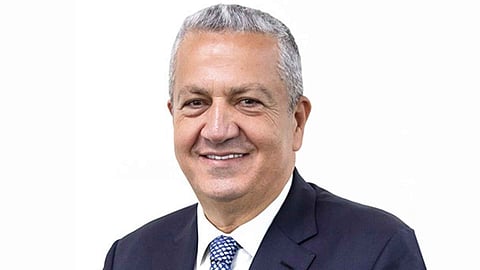Global Food Hub: How UAE is Adding Resilience to Food Supply Chains
As the pandemic and the post-pandemic periods have clearly illustrated, availability of ample food supplies is a significant global issue.
According to the UN General Assembly, nearly a billion people had insufficient access to healthy food in 2021, with conditions exacerbated by supply chain bottle necks, disruption from COVID-19 and global conflicts, along with the rising impact of climate change.
Food prices are forecast to stay at historically high levels until at least 2024, creating pressures on national budgets and health outcomes in all parts of the world.
Recognising the long-term challenges, the UAE has placed enhanced food production and more resilient supply chains at the heart of its vision for the future.
It has announced the target to secure the top spot on the Global Food Security Index – an international measure of indices measuring 113 countries – by 2051.
Achieving that ambitious target in a region that has historically imported more than 80% of its food requires multi-partnership collaboration and a concerted effort, with world-class logistics at its heart.
Therefore, while growing food in the UAE’s agricultural conditions is only half the battle, ensuring that food reaches consumers in a timely and secure manner requires advanced innovation and collaboration.
AD Ports Group Conducts Workshop on Marine Ecosystems
According to a recent report from Fitch, which indicates that the UAE’s food spending is set to grow from $19 billion in 2022 to $21.5 billion in 2025, at an average growth rate of 4.2% per year, the nation’s success in achieving its ambitious resiliency target will be a significant milestone.
Middle East’s Opportunity to Address Global Food Supply Issues
Across the UAE, a range of organisations are working to support more local food production, developing and deploying a range of cutting-edge technological solutions.
Equally, organisations in Abu Dhabi are leading the efforts to build the advanced infrastructure necessary to store and distribute domestically and internationally produced food supplies to local, regional and global markets.
Thanks to its strategic location between East and West, and offering access to over 4.5 billion consumers across Europe, Africa, the Middle East, and Asia, the UAE has an opportunity to provide a central hub for food storage and distribution across a broad footprint, providing it can help address some of the major global key food logistics challenges.
One of these challenges, and an important factor in driving up food prices, has been a record level of food wastage, with up to 40% of fresh food being damaged or wasted due to inadequately-structured supply chains for the current trade dynamics, unfavourable storage conditions or poor handling.
Accordingly, moving innovative storage and logistics solutions closer to customers, supported by cutting-edge monitoring and temperature control, can go a long way in supporting the efficient and safe distribution of temperature-sensitive fresh foods.
Furthermore, a near-sourcing approach that strategically positions key operations like processing, manufacturing and storage closer to key markets, supported by multi-modal transport links, will help shorten supply chains, reduce delivery times, and minimise damage to perishable goods.
Abu Dhabi’s Integrated Logistics Solutions
As the UAE’s key enabler of global trade and logistics, AD Ports Group, thanks to its integrated portfolio of end-to-end supply chain solutions, is well-equipped to support efforts to secure sufficient food supplies and ensure these can get to markets safely and efficiently.
As one of its latest milestone projects, it recently launched KLP21 - one of the largest and most advanced temperature-controlled logistics hubs in the Middle East and beyond.
Tailor-made to support critical sectors including food and beverage, which require specialised cold and ambient temperature-controlled storage, the hub comprises four warehouses with over 80,000 sqm of capacity supporting 100,000 pallet positions.
Supported by an advanced transport fleet of over 400 vehicles, operated by MICCO Logistics, the hub provides a unique opportunity for fresh food producers and retailers to save on costs, time and waste, while taking advantage of the hub’s position at the crossroads between major global markets.
KLP21 sits within AD Ports Group’s leading trade ecosystem that integrates multi-modal connectivity, digital innovation, and world-class industrial infrastructure to support food trade from every angle.
For example, the logistics hub benefits from proximity to two major seaports, including AD Ports Group’s flagship Khalifa Port, five international airports, major land trade corridor, and Etihad Cargo’s upcoming rail link connecting the GCC market.
Furthermore, KLP21 is located next to the upcoming Abu Dhabi Food Hub – KEZAD, which is set to be one of the largest food production and distribution hubs in the region.
Developed in partnership with Ghassan Aboud Group and Rungis, the Food Hub will cover a total land area of 3.3 million sqm and feature market areas, complementary activity zones, industrial cold storage, logistics, waste management and water treatment amenities.
It may be noted that AD Ports Group hosted the World Union of Wholesale Markets (WUWM) Conference 2022. The event was held for the first time in the Middle East region, this year in October.
By bringing together local, regional, and international food producers, wholesale markets, retailers, logistics companies, government representatives and policymakers, WUWM Conference reflected UAE’s growing global presence in this crucial discussion.
Looking Forward
Situated at the global geographic crossroads and bolstered by AD Ports Group’s strategic infrastructure and capabilities, Abu Dhabi and the UAE are in a prime position to support the global food security agenda.
The food sector in the nation is thriving, and thanks to strong government investment in production and logistics capacity, buyers from around the globe can enjoy efficient and cost effective access to high quality food products.
The rise of AgriTech businesses and advanced technology are opening opportunities for the UAE to become a net producer of food, and lead exports to other countries across the region.
In an era of global food shortages, it is possible to imagine a food-secure future, supported by the vision of the UAE’s leadership.
Read More: AD Ports Group & Aidrivers Conduct Exercise for Autonomous Transport


